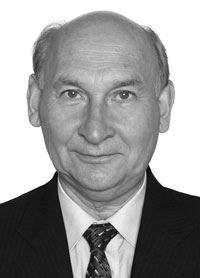EXTRACURRICULAR SERVICE MASTERING MODEL FOR SCHOOL PHYSICAL EDUCATION TEACHERS
Ключевые слова:
extracurricular service, extracurricular service competences, teaching service, educational process.Аннотация
Objective of the study was to analyze and prioritize the key institutional and pedagogical provisions for the extracurricular service competency formation in future school physical education teachers.
Methods and structure of the study. The extracurricular service mastering model testing experiment was run at Institute of Physical Education, Sports and Life Safety of the Bunin Yelets State University in 2019-2021. We sampled the 2-4-year students (n=162) majoring in the Physical Education and Life Safety specialties under 44.03.05 Pedagogical Education discipline; and split them up into EG (n=80) and RG (n=82).
Results and conclusion. The extracurricular service mastering model testing experiment found its benefits for the future school physical education teachers in the following components:
– Motivations and values in the extracurricular service providing domain;
– Practical learning and training to form due extracurricular service knowledge and skills;
– Experience in complementing the regular physical education curricula by interactive technologies (case studies, business games, brainstorming, focused training) to facilitate progress of schoolchildren in the extracurricular service formats;
- Establishing social partnerships with the relevant educational organizations for internships, and with the relevant municipal agencies; and
- Stimulating reflection to analyze the own and students’ progress in the extracurricular service process versus the past and present benchmarks and practical experiences to fairly rate, analyze and find solutions for every new situation in the extracurricular service process.
Success of an extracurricular service heavily depends on the actual professional motivations and values, didactic provisions, students’ and teachers’ personal progress agendas, teaching staff, applied interactive technologies, and generally on a progress facilitating climate that should be friendly and cooperative to effectively address every issue and mission in the extracurricular training process.
Библиографические ссылки
Grigoryev D.V., Stepanov P.V. Vneurochnaya deyatelnost shkolnikov. Metodicheskiy konstruktor [Extracurricular activities of schoolchildren. Methodological constructor]. Teacher’s guide. M., 2010. 223 p.
Egorova S.V. Obespechenie differentsirovannogo podkhoda k odarennym uchashchimsya vo vneurochnoy deyatelnosti po fizicheskoy kulture [Differentiated approach for gifted students in extracurricular physical education activities]. Sovremennye tendentsii razvitiya sistemy obrazovaniya (k 85-letiyu Chuvashskogo respublikanskogo instituta obrazovaniya) [Modern trends in development of educational system (to the 85th anniversary of Chuvash Republican Institute of Education)]. Proc. International research-practical conference. 2019. pp. 15–20.
Kravtsova L.M. Razvitie gotovnosti budushchego uchitelya fizicheskoy kultury k vneurochnoy deyatelnosti so shkolnikami [Development of competences of future physical education teacher for extracurricular activities with schoolchildren]. PhD. diss. abstract: 13.00.08. Chelyabinsk. 2010. 22 p.
Zamfir K. (modified by A. Rean); Rean A.A., Kolominskiy Ya.L. Metodika «Motivatsiya professionalnoy deyatelnosti» [Methodology "Motivation of professional activity"]. Sotsialnaya pedagogicheskaya psikhologiya [Social pedagogical psychology]. St. Petersburg, 1999. pp. 235–237.
Mitusova E.D., Mitusov V.V., Andrianov M.V. Programmno-metodicheskoe obespechenie realizatsii vneurochnoy deyatelnosti po predmetu «fizicheskaya kultura» [Programmatic and practical provisions for off-class practices in Physical Education]. Fizicheskaya kultura: vospitanie, obrazovanie, trenirovka. 2017. No. 5. pp. 55–57.
Khanin P.A. Spetsifika vneurochnoy deyatelnosti kak formy i vida uchebnoy deyatelnosti (na primere sportivno-ozdorovitelnogo napravleniya) [Specifics of extracurricular activities as form and type of educational activity (case study of sports and health direction)] [Electronic resource] Grigoriev D.V., Stepanov P.V. Extracurricular activities of schoolchildren. Methodological constructor: a guide for the teacher. M., 2010. 223 p.
Egorova S.V. Obespechenie differentsirovannogo podkhoda k odarennym uchashchimsya vo vneurochnoy deyatelnosti po fizicheskoy kulture [Differentiated approach to gifted students in extracurricular activities in physical education]. In: Modern trends in the development of the education system (to the 85th anniversary of the Chuvash Republican Institute of Education). Proc. International research-practical conference. 2019.pp. 15–20.
Kravtsova L.M. Razvitie gotovnosti budushchego uchitelya fizicheskoy kultury k vneurochnoy deyatelnosti so shkolnikami [Development of competences of future physical education teacher for extracurricular activities with schoolchildren]. PhD diss. abstract: 13.00.08. Chelyabinsk. 2010. 22 p.
Zamfir K. (modified by A. Rean). Rean A.A., Kolominsky Y.L. Metodika «Motivatsiya professionalnoy deyatelnosti» [Methodology "Motivation for professional activity"]. Social pedagogical psychology. St. Petersburg, 1999. pp. 235–237.
Mitusova E.D., Mitusov V.V., Andrianov M.V. Programmno-metodicheskoe obespechenie realizatsii vneurochnoy deyatelnosti po predmetu «fizicheskaya kultura» [Programmatic and practical provisions for off-class practices in physical education]. Fizicheskaya kultura: vospitanie, obrazovanie, trenirovka. 2017. No. 5. pp. 55–57.
Khanin P.A. Spetsifika vneurochnoy deyatelnosti kak formy i vida uchebnoy deyatelnosti (na primere sportivno-ozdorovitelnogo napravleniya) [Specifics of extracurricular activities as form and type of educational activity (case study of health and fitness direction) [Electronic resource] Internet journal "World of Science”. 2017. V. 5. No. 2. pp. 49–53.

Опубликован
Как цитировать
Выпуск
Раздел
Лицензия

Это произведение доступно по лицензии Creative Commons «Attribution» («Атрибуция») 4.0 Всемирная.
